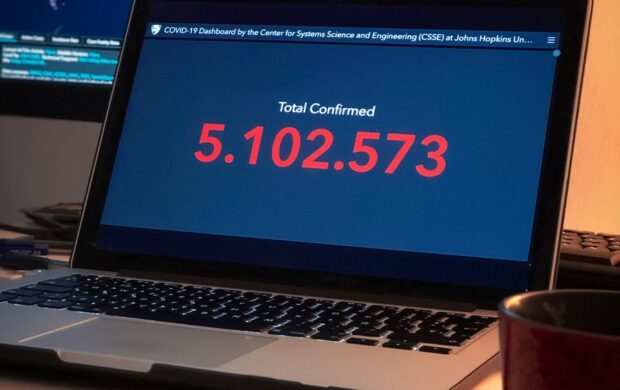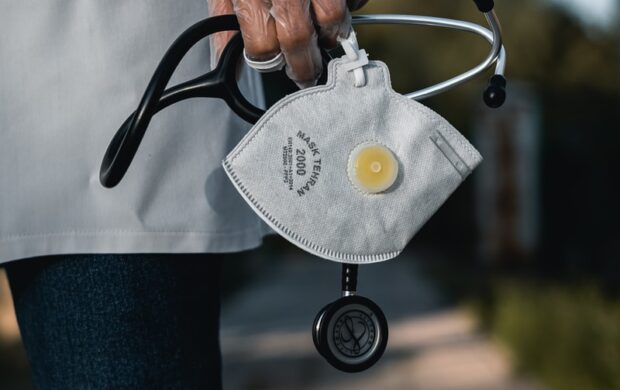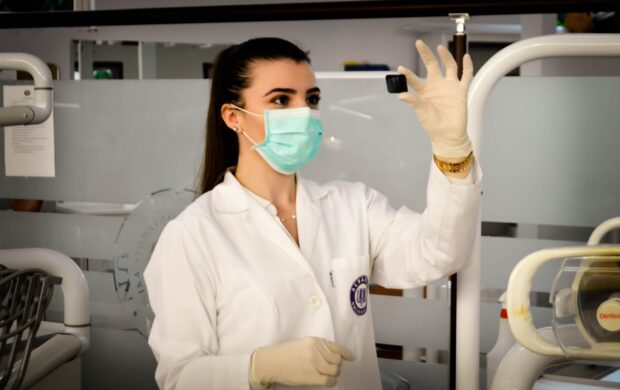The COVID-19 pandemic is testing the ability of health systems around the world to reach and provide quality care for people in need, magnifying issues of inequality, access, prejudice and more. While community health workers (CHWs) have played a role in health systems in parts of the world for decades, the pandemic has also opened a new lens and conversation about the important ongoing role CHWs can play in improving global health.
The first conversation in the “Resilient Health System of the Future – the case for community health” series focuses on an important question to kick off the dialogue: What is community health and why is it important for the future?
While it may seem like a simple question, the answers, and how to put them into practice, are complex. The WHO defines community health as: “environmental, social, and economic resources to sustain emotional and physical well-being among people in ways that advance their aspirations and satisfy their needs in their unique environment.” Organizations hold different working definitions for community health and, through the pandemic, it is clear that in many regions we are still determining the scope and role of community health within health systems. Community health and CHWs are critical in the overall care of the global population now and as we look to the future.
We started exploring this question with four experts in their area of the health system:

The discussion followed the structure of the Three Horizons Framework by Bill Sharpe to first explore Horizon 1: what is prevalent in the system today, next Horizon 3: what is the vision for the future, and finally Horizon 2: what are the innovations or disruptions that will help us move from Horizon 1 into Horizon 3.
Our experts shared key issues for the future of community health, highlighted through the response to COVID-19:
- There is a health worker shortage and lack of support for CHWs
- According to the World Health Organization: “18 million more health workers are needed to achieve universal health coverage by 2030 in low and lower-middle income countries; 9 million additional nurses and midwives needed by 2030 to reach Sustainable Development Goal 3 on health; 70% of the health and social workforce around the world are women.” In addition to the shortage of health workers, the imbalance of diverse persons in community health roles and lack of diverse perspectives in the field, CHWs are not integrated into the health system, often wages paid for care work are not fair or sufficient, and access to necessary education, mentoring and support are not available. These shortfalls prevent CHWs from being as effective as they could be.
- According to the World Health Organization: “18 million more health workers are needed to achieve universal health coverage by 2030 in low and lower-middle income countries; 9 million additional nurses and midwives needed by 2030 to reach Sustainable Development Goal 3 on health; 70% of the health and social workforce around the world are women.” In addition to the shortage of health workers, the imbalance of diverse persons in community health roles and lack of diverse perspectives in the field, CHWs are not integrated into the health system, often wages paid for care work are not fair or sufficient, and access to necessary education, mentoring and support are not available. These shortfalls prevent CHWs from being as effective as they could be.
- People’s expectation of what makes a “good” health system have changed
- Most people do not interact often with the formal health care system, instead focusing on managing their day to day physical, mental, social and spiritual needs to maintain a state of wellness acceptable for them.Conversely health systems tend to intervene when people are unwell or in a state of disease, which is more expensive and constrains the population experiencing positive effects. When adequately funded and supported, community health workers can extend the health system to reach more people with rapid diagnoses and, in some cases, treatments to keep people in a state of wellness.
- Most people do not interact often with the formal health care system, instead focusing on managing their day to day physical, mental, social and spiritual needs to maintain a state of wellness acceptable for them.Conversely health systems tend to intervene when people are unwell or in a state of disease, which is more expensive and constrains the population experiencing positive effects. When adequately funded and supported, community health workers can extend the health system to reach more people with rapid diagnoses and, in some cases, treatments to keep people in a state of wellness.
- There is a lack of urgency for changes to the health system
- In particular, more collective focus and will is needed to implement universal health coverage as well as to provide standardized curriculums and remuneration for CHWs to ensure they are equipped to address more frequent and complex health issues. If we can succeed in extending community health to more people, health and economic outcomes improve.
- According to the World Health Organization: “800 million people spend at least 10 percent of their household budgets on health expenses for themselves, a sick child or other family member. For almost 100 million people these expenses are high enough to push them into extreme poverty, forcing them to survive on just $1.90 or less a day.” Poverty impacts not only access to care but also access to the quality foods and other factors that impact individual and family health. Similarly changes to climate are having significant effects on human health.
- In particular, more collective focus and will is needed to implement universal health coverage as well as to provide standardized curriculums and remuneration for CHWs to ensure they are equipped to address more frequent and complex health issues. If we can succeed in extending community health to more people, health and economic outcomes improve.
- Governments are forced to see (and value) community health workers differently
- COVID-19 has forced governments to recognize community health workers as critical front line health workers for first contact. Some governments started community engagement strategies to look at the role of community health workers and are starting to talk about how to budget for community health workers.
- COVID-19 has forced governments to recognize community health workers as critical front line health workers for first contact. Some governments started community engagement strategies to look at the role of community health workers and are starting to talk about how to budget for community health workers.
- We need to reimagine the health system to revolve around the person seeking care rather than the practitioner
- Public and private actors should be encouraging people to make good decisions about their lives to maintain health. Policy makers have a role in changing behavior through social measures that promote health choices. There needs to be sufficient funding to look at the holistic picture of how to maintain health which may include things like solving for hunger or fair wages.
What do you see as the role of community health in the future? Join the discussion.
Check out the conversation page on the Futures Centre for a more detailed look at the notes from this discussion.
Explore the Signals
- We need community health workers
- Emerging COVID-19 Success Story: Vietnam’s Commitment to Containment
- Reimagining Global Health Teaching in High Income Countries
- We now know how to Code for our Vaccines
- Public Health Infodemic
Recommended Reads:


















Join discussion